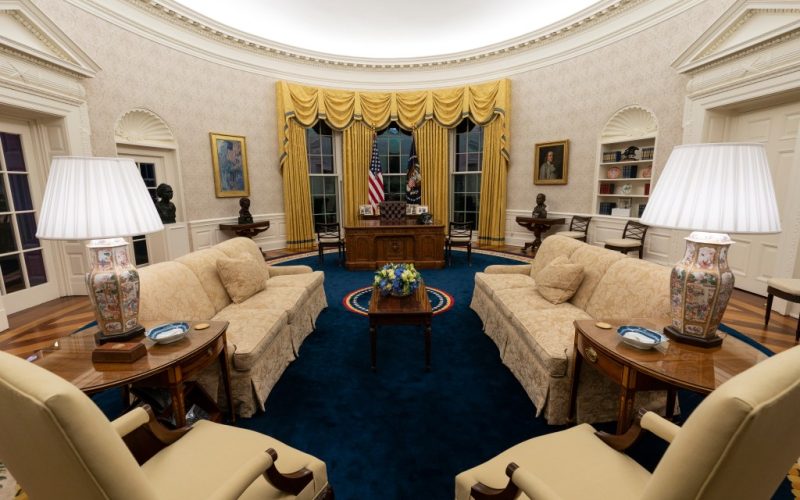As Joe Biden’s first and only term limps to a close, we see yet another president leaving office under a cloud of failure and suspicion. But it’s not just Biden. If you look at nearly every president over the last 65 years, it almost always ends badly. And yet the lessons from each successive failure never seem to be learned.
Joe Biden (2024) — Forced out of the presidential race, exposed as senile, his VP then loses, and the pardon of his son causes widespread bipartisan outrage.
Donald Trump (2020) — Failed to win reelection, spurred an insurrection on Jan. 6, is subsequently impeached and indicted (though he also was redeemed, in a way, after winning again this fall).
Barack Obama (2016) — The end of his second term was pretty smooth like the rest of his tenure. Yet he engineered Hillary Clinton’s nomination and she then lost whereas Biden might have beaten Trump in 2016 (and his pardon of Chelsea Manning was controversial).
George W. Bush (2008) — Left under the collapse of the U.S. economy, the global financial crisis, and his party then loses power.
Bill Clinton (2000) — Monica Lewinsky, impeachment, grants pardons to major donors and to his brother. Al Gore rejects his help and then the voters (sort of) reject Gore.
George H.W. Bush (1992) — Failed to win reelection. Excoriated for breaking his pledge on no new taxes.
Ronald Reagan (1988) — The end went relatively fine (although he did pardon George Steinbrenner). His VP won too.
Jimmy Carter (1980) — Failed to win reelection. Humiliated when Iran releases the hostages minutes after Reagan is inaugurated.
Gerald Ford (1976) — Lost to Carter, served less than one term in office.
Richard Nixon (1974) — Resigned in disgrace over Watergate, would have been impeached otherwise, would have been indicted if not for Ford’s pardon. Forever seen as a great American tragedy.
LBJ (1968) — Was so unpopular because of Vietnam that he could not run for reelection (“If nominated I will not run, if elected I will not serve” — don’t worry LBJ, neither were happening).
JFK (1963) — Assassinated by Lee Harvey Oswald (or by Fidel Castro or by Sam Giancana or by the KGB — or maybe some combination of all of them).
So if you’re president and don’t want to end your term in disgrace, are there common lessons to learn from these last 65 years? As a matter of fact, there are.
First, remember that people get tired after eight years of anyone in charge. They don’t love you indefinitely, no matter what your friends and staffers are telling you. Their tolerance for your shtick — no matter what your shtick is — will have worn thin. Do not overestimate the voters’ support or generosity. Tread carefully at the end if you want to leave office on a high note.
Second, pardons always cost you. That doesn’t mean you can’t make ideological choices or choices that you truly believe are necessary to heal the country (ranging from Washington pardoning those in the Whiskey Rebellion to FDR granting clemency to those who violated Prohibition to Ford pardoning Nixon). But when you’re taking care of family members or major donors, you’re choosing them over your own legacy.
Third, ego and hubris will always get in the way. Anyone who thinks they should be president does not think the laws of gravity apply to them. They assume they are so charming, so smart, so special that they can do whatever they want and get away with it. The timeline above shows that’s not the case, but odds are, they’ll still make the same mistakes again and again anyway.
Fourth, this problem will probably get worse over time. We are more polarized than ever. Angrier than ever. Have more ways to express our outrage than ever. Derive more social value and recognition from showing our outrage and victimization than ever. That means that the minute an outgoing president makes a move the other side doesn’t like, the howling begins even sooner and gets even louder.
Is Trump likely to take heed of any of this on his way out (hopefully) in 2028? No — but he’s such an outlier, maybe none of the norms apply to him, good and bad.
But odds are, in 2029, we’ll inaugurate a far more conventional president and when that person leaves four or eight years later it will be one of the few presidencies in modern history to actually learn from the mistakes of predecessors in the Oval Office, defy the odds and leave office in the good graces of the American people. Maybe for once, that president will take it.
Tusk is a venture capitalist, political strategist and philanthropist.








